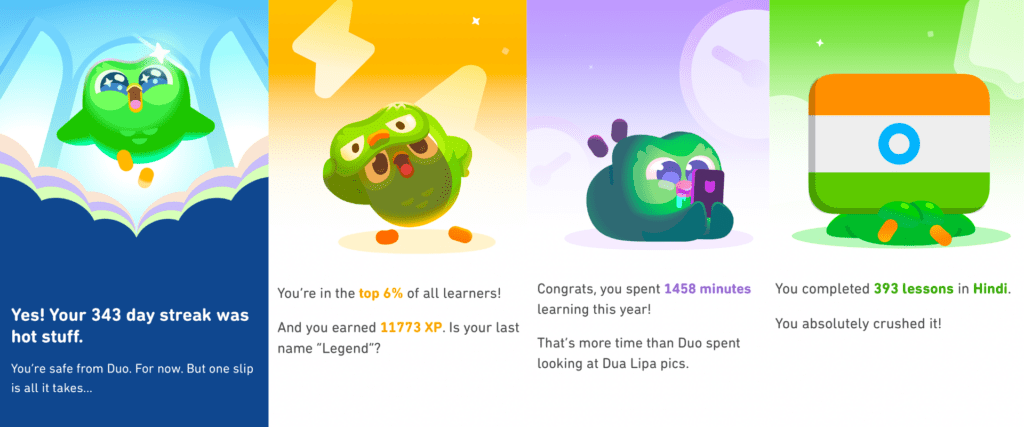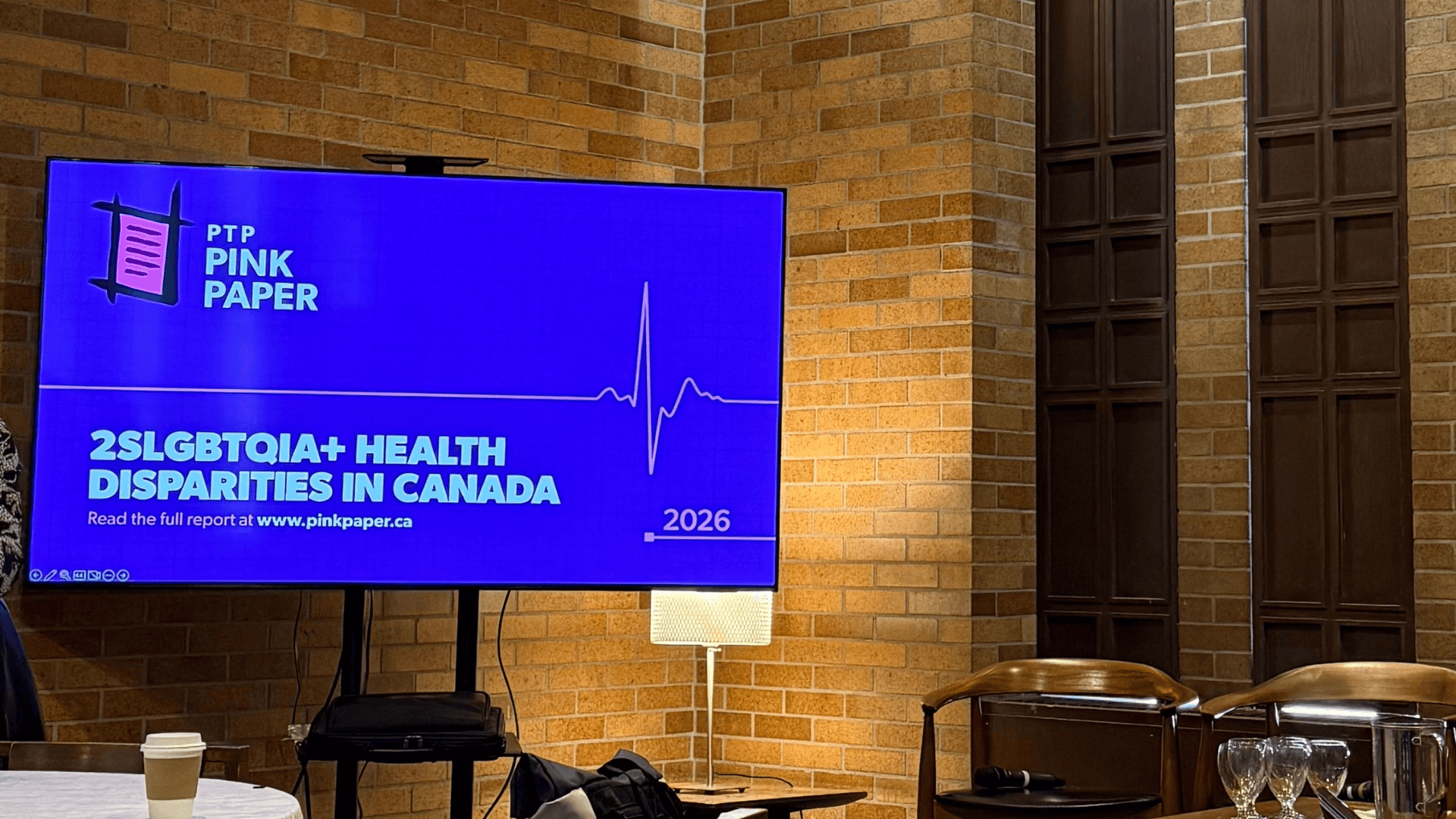Lessons in Engagement and Learning for Patient Programs
I recently celebrated a milestone: one full year of learning on Duolingo. What started as a simple goal to improve my language skills in Hindi and French—languages I could understand at a basic level but wanted to enhance, particularly in reading and writing—turned into a journey that taught me not only new words but valuable lessons in engagement, motivation, and learning.
When developing patient engagement strategies, especially in healthcare, I’ve always found it essential to look for inspiration from other industries. I believe my recent experience with Duolingo – an app that has proven its ability to engage millions of users globally with consistent, effective learning – offers valuable lessons for patient programs. Engagement, compliance, motivation, and learning are at the core of many healthcare initiatives. Although its focus is on language acquisition and not health, Duolingo makes a powerful case for how gamification, personalization, and positive reinforcement can transform even daunting goals into approachable, actionable strategies.
Progress Visualization and Emotional Cues
One standout feature of Duolingo is its use of visual progress tracking and emotional prompts. The app’s main mascot is an owl named Duo, who suffers from neglect if you don’t do your daily practice. Users who log just a few exercises can avoid facing the “dying owl” on their phone as the end of the day approaches. It’s a gentle yet powerful reminder to stay consistent. Having Duo on the first page of my phone, staring at me every time I checked the screen, tapped into an emotional sense of responsibility and continuity. Even though he’s just a cartoon, I got into the habit of wanting to keep the owl (an avatar for my commitment to my own goals) alive and happy. Patient programs can similarly use visual and emotional cues to encourage adherence, such as friendly notifications that emphasize consistency and positive reinforcement.
Badges, Rewards, and Celebrating Achievements
Duolingo keeps learners motivated through badges and rewards, offering a sense of accomplishment as users complete tasks or reaching milestones. These virtual achievements might seem simple, but they trigger dopamine releases that encourage users to keep coming back. Patient programs can benefit from adopting similar strategies, using digital badges or small incentives to celebrate completed steps in treatment plans, medication adherence, or regular health check-ups.
The Power of Friendly Competition and Social Interaction
Leaderboards and competitive streaks on Duolingo bring a playful sense of rivalry that fuels engagement. Applying these mechanisms to patient programs could mean organizing friendly challenges within patient communities. For example, patients could share step counts, blood sugar management successes, exercise tracking or other health achievements within a safe and supportive digital space. Friendly competition can foster a sense of community and makes participating in health initiatives more interactive and fun.
Competitions don’t have to be individual. Collaborative missions that patients can complete with others in their network can reinforce connectedness and shared purpose. Just as Duolingo encourages users to team up and achieve group goals, patient programs could integrate team-based challenges, where participants work together to complete health milestones or wellness tasks.
Personalized Learning and Adaptive Content
One of Duolingo’s strengths is its ability to adapt content based on user performance. When a user struggles with specific words or phrases, the app provides additional practice in that area. For patient programs, this could translate to adaptive learning pathways that change based on patient needs and progress. Personalizing content helps prevent feelings of frustration and makes the program more relevant.
Gamification of Progress Tracking
Duolingo uses experience bars and other progress indicators to show users how close they are to the next milestone. In patient programs, gamifying health progress with visual indicators or “journey maps” can empower patients to stay motivated. Progress tracking that visually represents even small improvements can help maintain engagement and encourage patients to continue their health plans.
Commitment Reminders and Habit Formation
Duolingo excels at forming habits through daily reminders and “streaks” (days of consecutive practice), which help users build a sense of routine. Patient programs could replicate this by incorporating consistent reminders—either through mobile apps or text messages—to help patients maintain their health routines. Habit formation is key, as the longer a positive behavior is reinforced, the more likely it becomes ingrained.
Flexible Engagement Options
One particularly helpful feature of Duolingo is the ability to earn and save “streak freezes,” which let users take a break without losing their progress streaks. This flexibility acknowledges that life happens and that maintaining perfect consistency isn’t always realistic. Patient programs could adopt a similar approach by offering “pause” options, enabling patients to temporarily step away from the program due to life events without feeling penalized. This workaround may reduce anxiety about missed days and encourage patients to re-engage when they’re ready, fostering greater long-term commitment and participation.
Microlearning and Accessibility
The short, digestible lessons offered by Duolingo make learning less intimidating and more accessible. Patient programs can adopt a similar approach by breaking down complex medical topics into small, manageable lessons that patients can complete at their own pace. This strategy can be particularly valuable for individuals who might feel overwhelmed by extensive medical information, making learning more approachable and less stressful.
Additionally, offering lessons that can be completed in just five minutes makes engagement feel less burdensome. Whether it’s during a subway ride, while waiting for dinner to finish cooking, or in other small pockets of free time, this flexibility allows patients to fit learning seamlessly into their day. By meeting patients where they are, programs can encourage consistent participation and reduce the stress often associated with medical education.

Appealing to Different Value Profiles
Another lesson from my Duolingo experience is how the platform resonates with different values: the motivations and priorities that guide individual thinking and choices. My work at Environics often involves observing how values influence individual behaviors – and this lens has become part of how I think about many things, including experiences like Duolingo. I decided to talk to people I know who use Duolingo, seeking insight into how the platform’s engagement strategies tap into their values. These informal chats were by no means a research initiative, but they did spark some ideas for me about how certain values might be engaged in a program like Duolingo. Below, I’ve outlined a few of the values contained in Environics Social Values data (real, measurable constructs we use in our research), as well as some informal observations about how people who score high on these values might be activated through a patient program.
- Personal Challenge: People who score high on this value thrive on setting and achieving goals. To tap into this value, patient programs should incorporate milestones and tangible achievements, such as digital certificates or rewards for progress, to resonate with users’ desire for accomplishment.
- Social Intimacy: Patients who value close-knit connections would appreciate opportunities to share experiences and engage with others who are going through similar experiences in group discussions, support forums, or community challenges that foster deeper relationships and mutual encouragement.
- Pursuit of Novelty: Individuals high on this value are drawn to variety and innovation. Programs like Duolingo, which offer diverse learning modes (e.g., speaking, writing, and reading), maintain their interest by providing a changing mix of experiences.
- Aversion to Complexity: Those who score high on this value feel overwhelmed by complexity and change, and feel a pull toward simplicity. Patient programs designed with consistent structures and clear, predictable processes can alleviate their anxiety and increase engagement.
My one-year journey on Duolingo has shown me that engagement is much more than completing a task—it’s about connecting with users on multiple levels: emotional, social, and cognitive. Applying these lessons to patient programs means creating personalized, adaptable, and multi-faceted experiences that foster connection and make health journeys feel rewarding, not just in their results but in the day-to-day experience of participation.
Patient programs don’t need to be mundane. By applying engagement strategies learned from platforms like Duolingo, we can inspire patients to be active participants in their health, motivated by a sense of achievement, community, and continuous progress.






Personal Challenge
Social Intimacy
Aversion To Complexity
Pursuit Of Novelty